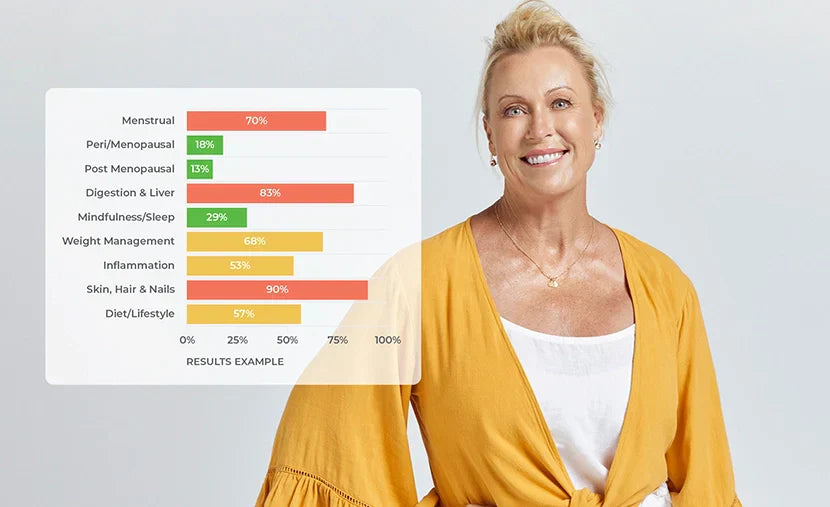This article discusses a little-known effect driving weight gain as we age. And it is not your hormones.
As we age, our bodies undergo numerous changes, many of which are not immediately visible. One such change is the gradual decline in digestive efficiency, which can significantly impact our overall health and well-being. From the age of 40, and even younger our digestive secretions reduce by 40%.
The impact of this effect is we do not meet our macronutrient requirements of protein, carbohydrates, and fat, the 3 essential elements for us nutritionally. The NET effect is a phenomenon known as the "macronutrient leverage hypothesis" where the body increases its appetite in an attempt to meet macro and micronutrient needs.
The Decline of Digestive Capacity with Age
Research indicates that aging affects the ability to metabolise our macronutrients; Protein, Carbohydrates, and Fats. Our protein requirements increase as we age, not due to activity but absorption. Our ability to metabolise carbohydrates reduces as we become more insulin insensitive and finally, our gall bladder function reduces, causing our fat metabolism to reduce.
Protein Deficiency and Increased Appetite
When dietary protein needs are not met through intake or assimilation, the body drives an increase in overall food intake to achieve the necessary protein levels, even if this results in consuming excess calories from fats and carbohydrates. This mechanism can contribute to overeating and weight gain.
Studies have demonstrated that both younger and older men consuming inadequate protein experience heightened hunger and a stronger desire to eat, which may promote increased food intake.
Carbohydrate and Fat Deficiencies
While protein has a pronounced effect on appetite regulation, insufficient intake or metabolism of carbohydrates and fats can also influence eating behaviour. Carbohydrates are the body's primary energy source, and inadequate intake/metabolism can lead to fluctuating blood sugar levels, triggering hunger signals. Prediabetes and diabetes are very common from the ages of 50 and onwards. Similarly, fats are essential for various bodily functions, including hormone production and nutrient absorption. A deficiency in dietary fats may lead to a lack of satiety, causing increased food consumption as the body seeks to fulfill its energy and functional requirements.
Micronutrient Deficiencies and Hunger
Beyond macronutrients, deficiencies in vitamins and minerals can also impact appetite. For instance, a lack of certain micronutrients may lead to increased feelings of hunger as the body attempts to obtain the missing nutrients through additional food intake.
This decline is due to reduced production of stomach acid and digestive enzymes as we age and is associated with digestive conditions such as irritable bowel syndrome and inflammatory bowel disease.
Consequences of Reduced Nutrient Absorption
When the body's ability to absorb macro and micronutrients diminishes, it may respond by increasing appetite in an attempt to meet its nutritional needs. This compensatory mechanism can lead to overeating, as the body craves more food to offset the perceived deficiencies. However, if the underlying issue of malabsorption isn't addressed, increased food intake may not resolve the nutrient shortfall.
Overconsumption, Reduced Activity, and Metabolic Syndrome
The combination of overeating and a natural decline in physical activity as we age creates a perfect storm for weight gain and the development of metabolic syndrome—a cluster of conditions including increased blood pressure, high blood sugar, excess body fat around the waist, and abnormal cholesterol levels. This syndrome elevates the risk of heart disease, stroke, and type 2 diabetes.
Impact on Sleep, Hormonal Balance, and Energy Levels
Excess weight and metabolic imbalances can disrupt sleep patterns, leading to conditions like sleep apnea. Poor sleep further exacerbates hormonal imbalances, particularly those regulating hunger and stress, creating a vicious cycle that affects energy levels and overall health. Often perimenopause and menopause are associated with weight gain and hormones get the blame. However to effectively treat the so-called menopausal belly, the secret lies in improving digestive capacity.
THE TREATMENT
Enhancing Digestive Capacity with Natural Remedies
To combat these challenges, improving digestive efficiency is paramount. Incorporating natural products designed to support digestion and liver function can be beneficial.
Step 1.
Bitters and ginger
Bitters and heating compounds such as Apple Cider Vinegar, fermented foods, bitter herbs and ginger have been shown to stimulate gut hormones: Activation of T2Rs by bitter compounds can stimulate the secretion of hormones such as cholecystokinin (CCK) and glucagon-like peptide-1 (GLP-1). These hormones play roles in promoting satiety, regulating appetite, and enhancing digestive secretions.
Modulation of Gastric Motility: Bitter substances may influence gastric motility, potentially slowing gastric emptying and allowing for more efficient nutrient absorption. This modulation can lead to improved digestion and reduced postprandial blood glucose levels.
Step 2
Dietary Modifications:
Incorporate Fiber-Rich Foods: Consuming a diet high in both soluble and insoluble fiber supports regular bowel movements and overall digestive health. Foods such as fruits, vegetables, legumes, and whole grains are excellent sources.
Include Fermented Foods: Introducing naturally fermented foods like yogurt, kefir, sauerkraut, and kimchi can provide beneficial probiotics that promote a balanced gut microbiome, aiding digestion.
Stay Hydrated: Adequate water intake is essential for digestion, as it helps dissolve nutrients and facilitates their absorption. Drinking plenty of water throughout the day can prevent constipation and support overall digestive function.
Reduce low flbre, hyper-palatable processed foods: These foods increase digestive inflammation, trigger reflux, and encourage overeating.
Step 3
Digestive enzymes and liver function
Digestive enzymes which reduce with age can be replaced with supplementation. The two enzymes which are essential are protease for protein digestion and lipase for fat assimilation. Happy Liver contains both these enzymes and should be taken with meals to enhance digestive capacity. The additional liver support ingredients assist in regulating blood sugar levels and hence carbohydrate metabolism.
Step 4
Pre/Pro/Post Biotics
The balance of your digestive microbiome plays a large role in controlling appetite and aiding the digestion of protein, carbohydrates, and fats. To encourage a healthy microbiome our product Happy Digestion provides a combination of pre/pro and post-biotics. In combination with additional ingredients to reduce inflammation and digestive enzymes, it makes the perfect product to rehabilitate your digestion, which in turn, improves the assimilation of macronutrients and down-regulates appetite.
Step 5
Stress Management:
Chronic stress can negatively impact digestion. Incorporating stress-reduction techniques such as meditation, deep breathing exercises, yoga, or tai chi can improve digestive health. In almost all cases of digestive inflammation, stress can be traced as a major contributing factor. You should always try to relax before consuming a meal.
Step 6
Regular Physical Activity:
Engaging in regular exercise, such as walking or gentle yoga, can promote intestinal motility and reduce symptoms of bloating and constipation. Interestingly athletes have the most diverse and robust microbiomes.
Conclusion
Weight gain as we age is often associated with reduced activity and hormonal changes when in reality, your body is more than likely not meeting macronutrient needs through diet and the ability to absorb these macronutrients.
This leads to a very subtle, yet powerful mechanism where the body will overeat in an attempt to meet these basic and fundamental requirements for survival. Correcting digestive ability can be the missing secret in long term weight management.










Leave a comment
This site is protected by hCaptcha and the hCaptcha Privacy Policy and Terms of Service apply.